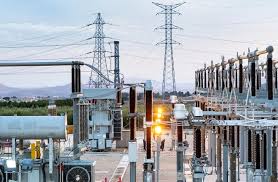Business
‘Manufacturing, Power, Construction To Benefit From 2017 Budget’
The Securities and Exchange Commission (SEC) has listed manufacturing, trade, works, power, housing and transport as the sectors that would benefit much from the Federal Government’s 2017 budget if well implemented.
SEC Head, Economic Research and Policy Management Division, Dr Afolabi Olowookere, said this at the 2017 budget seminar organised by the commission in Lagos.
Olowookere said that listed equities of the sectors would perform better in 2017 because of the budget focus.
He said that stocks of these sectors would lead the capital market in 2017, noting that the major challenge would, however, be high cost of capital.
According to him, financial companies and services firms that serviced the sectors would indirectly benefit from the budget.
He also said that stocks of companies, supplying government materials or working for government, would benefit from the budget indirectly.
Commenting on the theme: The 2017 budget of growth and recovery: Revelance, implications and perspectives of the Nigerian capital market, Olowookere stated that the budget would affect the market directly or indirectly.
He said that the Nigerian Stock Exchange (NSE), All-Share Index which declined by 6.17 per cent in 2016 would do better this year.
Olowookere, however, stressed the need to improve domestic investor participation in the market, noting that, foreign investors would further shun the market due to foreign exchange challenges.
“Foreign investors will be very careful in the market, especially with stocks that did not price in foreign exchange risk,” he stated.
He said that fixed income securities would be investors preference due to government use of debt instruments to service the budget deficit.
“The budget deficit of N2.36 trillion will have negative and significant effect on the equities market,” Olowookere stated.
He said that the foreign exchange policy would affect companies operations and performance in 2017 with exception of foreign exchange generating companies.
Olowookere said that review of the pension investment laws was necessary to increase the activities of the Pension Fund Administrators (PFAs) to increase institutional investors participation.
On the roles of capital market in budget planning and processes, he said that the market could provide platform for sale of government shares during participation.
He said that proceeds realised from privatisation could be used for budget financing.
Olowookere added that the capital market engendered transparency among listed firms, thereby easing source of tax collection.
He stated that capital market stakeholders could also submit input into budget planning process.
He called on market stakeholders to introduce alternative investment schemes such as infrastructure financing to deepen the market.
Olowookere said that the 2017 budget, if well implemented, would return the economy to expected growth and recovery.
Business
Abia Takes Over Electricity Supply In 8 LGAs

Business
‘Gas Shortages, Infrastructure Deficiency, Bane Of Power Sector Growth’

Business
NUPRC Blames Out Service Trunk Lines On Vandalism … As Rivers NUJ Promises Development Journalism



